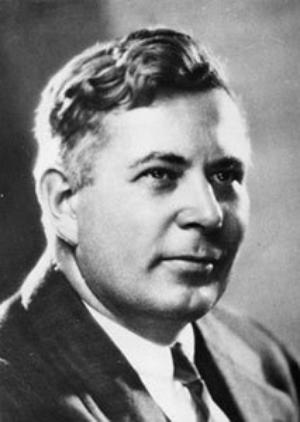Ben Saunders had a great comment which I wanted to highlight in a post for Marston’s birthday. So here ’tis.
Thanks for your comment, Mike. To elaborate on Noah’s response: part of the difficulty, I think, is that Marston was an extraordinary sexual optimist who believed in the liberatory potential of desire. Although it is Freud who is usually associated with the logic of repression (“your neurozis iz a funktion of your represt longink for your muzzer!”), he was in fact far less optimistic about the idea that facing and overcoming repressions might lead to “health” than Marston. There’s a dark side, an almost cthonic element, to Freudian libido. Marston, on the other hand, seems much more cheery; “free yourself from your repressions, give in to your (real) desire to be dominated, and you will be happy.” It’s really a kind of sex-faith – to the point that the possibility of acknowledging a sexual element in all the non-sexual scenarios you suggest (child-parent, student-teacher, good citizen before the law) would not be seen by Marston as a distortion or corruption of those scenarios. Marston would probably say that the very need to insist that those scenes are non-sexual is itself a sign of our tendency to view sexual energy (falsely) as inevitably corrupting.
Of course, that’s exactly how a puritan culture DOES see sex – as dangerous, forbidden, shameful, corrupt, and having NO PLACE in any of the social interactions you have described. In some ways, it’s that puritanism that Marston is responding to – but he really doesn’t think he’s being subversive by insisting that sexual energy does play a role in all those interactions, because sexual energy is an unqualified good, in his vision.
I don’t actually agree with that, and would be hard put to point to one place in his writings where he flat out says it – it’s more an implication of the larger theories. But I think it’s a fair characterization of his thought, and it helps to explain why his comics seem weirdly sexy and sexless at the same time (to our perhaps jaded, puritan-in-reverse, pornotopic culture). His vision of sex is simply too sunny for us. To that extent, the observation that Marston was less cynical than us is probably right on – although I wouldn’t attribute a lack of cynicism to his culture at large, for all that their standards for sexual display were very different from our own.
The entire roundtable on Marston/Peter’s Wonder Woman is here.


————————-
Ben Saunders says:
…To elaborate on Noah’s response: part of the difficulty, I think, is that Marston was an extraordinary sexual optimist who believed in the liberatory potential of desire…“free yourself from your repressions, give in to your (real) desire to be dominated, and you will be happy.”
————————–
Why, he was like a 60’s guy before that time! Your “sexual optimist” remark also reminds of the “orgone box” guy…
————————–
[Wilhelm] Reich argued that the source of sexual repression was bourgeois morality and the socio-economic structures that produced it. As sexual repression was the cause of the neuroses, the best cure was an active, guilt-free sex life. He argued that such a liberation could come about only through a morality not imposed by a repressive economic structure…
————————–
http://en.wikipedia.org/wiki/Wilhelm_Reich
Surely Marston must have known about Reich; they were contemporaries, both in the psychology field…
—————————
Ben Saunders says:
… the possibility of acknowledging a sexual element in all the non-sexual scenarios you suggest (child-parent, student-teacher, good citizen before the law) would not be seen by Marston as a distortion or corruption of those scenarios. Marston would probably say that the very need to insist that those scenes are non-sexual is itself a sign of our tendency to view sexual energy (falsely) as inevitably corrupting.
Of course, that’s exactly how a puritan culture DOES see sex – as dangerous, forbidden, shameful, corrupt, and having NO PLACE in any of the social interactions you have described.
—————————
Yes indeed! Though at least in some cases, t’was not always thus: contrary to their uptight image, Puritans publicly told of having religious experiences where contact with the Divine was clearly commingled with an erotic charge…
Well, puritanical culture is different from how the puritans actually behaved.
http://www.cracked.com/article_19575_5-ridiculous-sex-myths-from-history-you-probably-believe.html